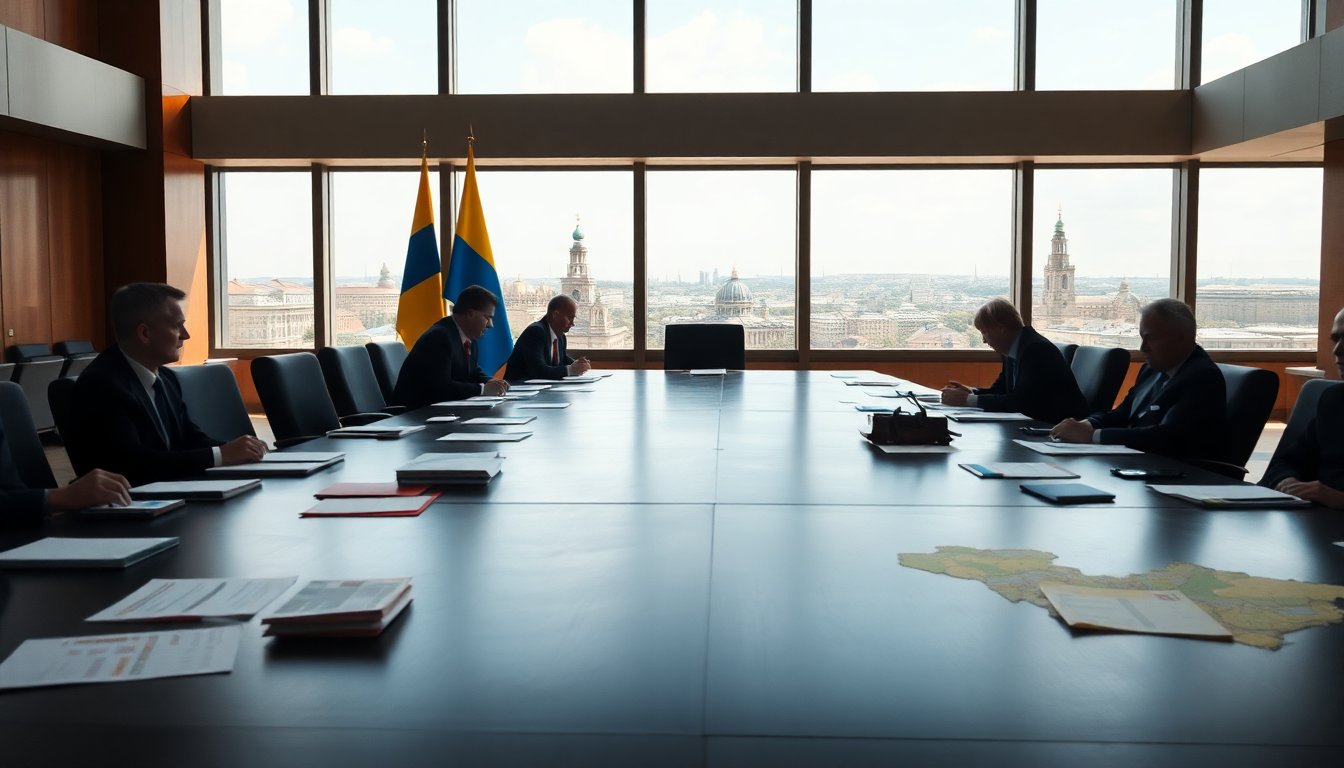Table of Contents
As Ukraine continues to confront Russia’s large-scale invasion, President Volodymyr Zelenskyy has underscored the severity of the situation in a recent national address. After nearly four years of conflict, Ukrainians find themselves at a critical juncture, particularly concerning a new peace proposal from the United States. This complex offer, which includes many of Russian President Vladimir Putin’s long-standing demands, may compel Ukraine to consider difficult compromises.
The U.S. plan proposes substantial territorial concessions from Ukraine, which President Zelenskyy has consistently rejected. This proposal not only diminishes the size of Ukraine’s military but also complicates its ambitions for NATO membership. In a recent radio interview, U.S. President Donald Trump stated he anticipates a response from Zelenskyy regarding this 28-point plan by Thursday. He suggested that an extension might be possible if discussions are progressing favorably.
Negotiating a delicate balance
Ukrainian President Volodymyr Zelenskyy recognizes the fragility of Ukraine’s negotiating stance. He voiced apprehension that complying with U.S. conditions could risk essential support from the American government. In a recorded address, he stated, “The pressure on Ukraine is currently at an all-time high. We are at a point where we might have to choose between our dignity and the potential loss of a key ally.” This perspective highlights the complex nature of international diplomacy, where national interests frequently clash with the expectations of influential partners.
International reactions and support
During ongoing negotiations, Ukrainian President Volodymyr Zelenskyy spoke with leaders from Germany, France, and the United Kingdom. The leaders reaffirmed their commitment to support Ukraine and expressed a desire for a sustainable and equitable peace agreement. Their measured responses to U.S. proposals reflect an effort to balance backing for Ukraine while maintaining good relations with the American administration. German Chancellor Friedrich Merz, French President Emmanuel Macron, and British Prime Minister Keir Starmer collectively emphasized the necessity of preserving Ukraine’s sovereignty in any peace discussions.
Discussions highlighted the importance of maintaining Ukraine’s military capability to effectively defend its sovereignty. European officials recognize that the outcome of Ukraine’s conflict with Russia significantly affects European security. As EU foreign policy chief Kaja Kallas noted, “Russia’s aggression poses an existential threat to Europe, and we must ensure that the terms of any agreement respect Ukraine’s right to self-determination.”
Domestic challenges complicating the landscape
The situation in Ukraine is further complicated by internal challenges. President Zelenskyy is currently addressing a significant domestic corruption scandal, which has resulted in the resignation of key officials, including the energy and justice ministers. This internal strife adds pressure on Zelenskyy as he works to maintain public trust while managing international relations. In his recent address, he called on Ukrainians to unite and avoid infighting, emphasizing the importance of solidarity during these turbulent times.
Impacts of ongoing conflict
Ongoing conflict raises urgent concerns
As diplomatic discussions progress, the harsh realities of the conflict continue to impact civilians. Recent Russian attacks on civilian areas, including the bombings in Zaporizhzhia and Odesa, underscore the persistent threat to Ukrainians. These assaults not only result in casualties but also highlight the critical need for a resolution to the conflict. The tragic bombing in Ternopil, which claimed innocent lives, including children, serves as a poignant reminder of the severe consequences of war and the urgent necessity for a peace agreement.
Kremlin’s cautious response to U.S. peace proposal
In this chaotic environment, the Kremlin has approached the U.S. peace proposal with caution. Spokesperson Dmitry Peskov stated that no formal communication regarding the peace plan had been received from the U.S., reflecting the uncertainty surrounding the negotiations. The situation remains fluid, with ongoing diplomatic efforts but substantive discussions yet to take shape.
Ukraine faces a pivotal moment as it navigates the implications of the U.S. peace proposal alongside ongoing military challenges. President Zelenskyy must carefully balance the preservation of national dignity with the necessity of securing international support. As the conflict continues, collaboration between Ukrainian leadership and its allies is crucial to establish a pathway toward a sustainable and equitable peace.


